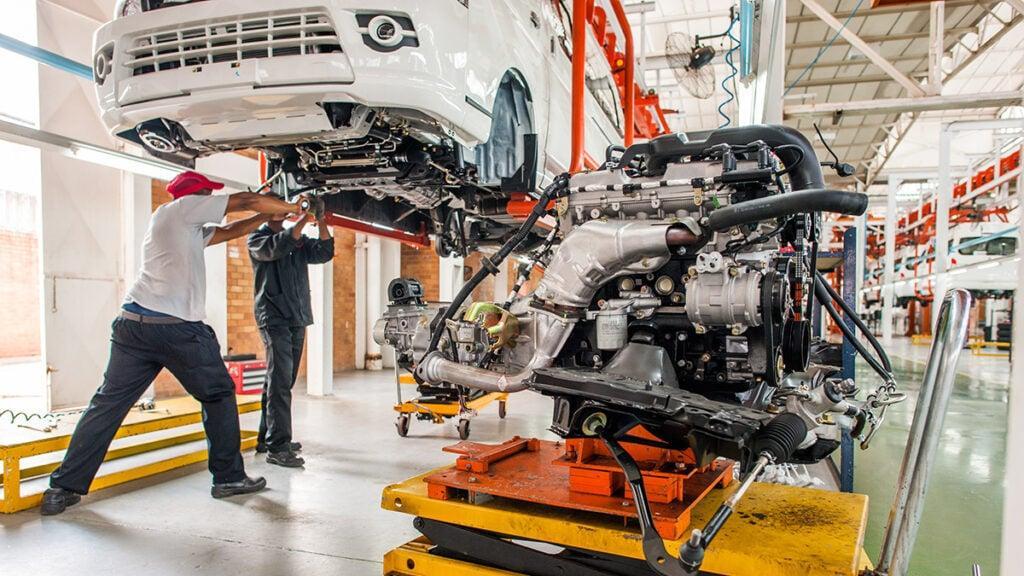Africa-Press – South-Africa. A trend is emerging in South Africa, where vehicles that are partially damaged and would not ordinarily be written off are being declared total losses.
This is due to rising repair costs associated with the difficulty in sourcing spare parts, which is affected by the current geopolitical environment.
A key driver of this has been the uncertainty created by the volatile trade policy pursued by United States President Donald Trump.
Santam Broker Solutions’ chief underwriting officer, Thabo Twalo, recently outlined the key drivers of commercial claims in the insurer’s 2025 Insurance Barometer.
The barometer aims to analyse the trends impacting insurance coverage in South Africa over the past two years. The last such report was published in 2023.
Twalo explained that this period has been characterised by heightened macroeconomic and political uncertainty.
This uncertainty and volatility have only been ratcheted up by the new United States administration, which is seeking to reorder global trade.
It has done this by implementing tariffs on goods imported into the United States, with a 10% across-the-board tariff and higher reciprocal measures for some of the worst offenders.
South Africa was caught up in this storm and has been trying to secure a trade deal with the United States to minimise the impact on its exports to the world’s largest economy.
However, tariffs placed on the country’s major trading partners, particularly the European Union and China, have the biggest impact.
A negative impact on these economies not only reduces their demand for South African exports but has also made it more difficult to source products from these markets as companies race to stockpile goods before the 90-day pause on tariffs ends.
Twalo said Santam is mostly seeing the impact of this in its commercial claims business and, in particular, in its vehicle claims segment.
He explained that a trend is emerging where vehicles that have been damaged in an accident or otherwise are being declared total losses, despite the damage being repairable historically.
This is because repair costs have risen sharply due to costly imported parts affected by the geopolitical environment.
Major threats to businesses
Businesses and commercial brokers surveyed by Santam were particularly concerned about the impact of economic change on their prospects.
This includes changes in the global economy, but is mainly driven by ongoing policy uncertainty in South Africa.
Eight in ten businesses said they had been negatively impacted by emerging risks over the past two years, and over half of them cited economic change as a top concern.
However, when asked to look further ahead, 75% of corporates and 68% of commercial respondents ranked South Africa’s poor infrastructure as their number one concern.
The country’s infrastructure, particularly electricity, water, and logistics, has deteriorated significantly over the past few years.
This is the result of a decade of underinvestment in maintenance and new infrastructure, with much of it needing to be completely replaced.
South Africa’s public corporations, particularly Eskom and Transnet, have increasingly allocated capital to consumption and salaries rather than fixed investment.
This has translated into electricity shortages and periods of severe load-shedding, as well as logistics bottlenecks and delays at the country’s ports.
Regarding insurance, deteriorating infrastructure is a major concern as it tends to exacerbate the impact of extreme weather events and other crises.
This can be seen in Toyota South Africa Motors’ insurer suing Transnet and the KwaZulu-Natal Department of Transport for R6.5 billion in damages due to inadequate flood prevention measures.
Toyota’s Prospecton facility suffered heavy damage during the April 2022 floods in KwaZulu-Natal, resulting in severe economic losses.
Santam said the resulting flood damage and the 16-week halt in production resulted in an insurance claim estimated at over $350 million (R6.1 billion).
Toyota has since invested R236 million in additional flood prevention measures to safeguard its facility against future events.
For More News And Analysis About South-Africa Follow Africa-Press






